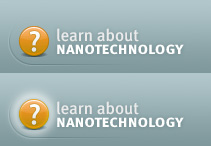NanoFrontiers: Visions for the Future of Nanotechnology
Monday April 23, 2007 • 12:30 – 1:30 PM
Woodrow Wilson Center • 5th Floor Conference Room • Light lunch available at Noon
 Controlling the properties and behavior of matter at the smallest scale—in effect, “domesticating atoms”—can help to overcome some of the world’s biggest challenges, concludes a new report on how diverse experts view the future of nanotechnology. This event marks the release of Nanofrontiers: Visions for the Future of Nanotechnology, by Karen Schmidt. This is a new publication that highlights the findings of a Washington, DC meeting organized by the National Science Foundation, National Institutes of Health, and the Project on Emerging Nanotechnologies at the Woodrow Wilson Center.
Controlling the properties and behavior of matter at the smallest scale—in effect, “domesticating atoms”—can help to overcome some of the world’s biggest challenges, concludes a new report on how diverse experts view the future of nanotechnology. This event marks the release of Nanofrontiers: Visions for the Future of Nanotechnology, by Karen Schmidt. This is a new publication that highlights the findings of a Washington, DC meeting organized by the National Science Foundation, National Institutes of Health, and the Project on Emerging Nanotechnologies at the Woodrow Wilson Center.
Relevant to nearly every industry, nanotechnology is considered a “platform technology,” the report says, because “it readily merges and converges with other technologies and could change how we do just about everything.” Today, nanotechnology is delivering promising methods for cleaning up polluted sites, monitoring water sources, and enabling new methods of drug delivery. Tomorrow, it could provide the technical means for new solutions to the world’s energy problems, to treat water at its point of use, and to make artificial tissues that replace diseased organs and even repair nerve damage.
Nanotechnology is still very much a work in progress—for example, while most first-generation nanomedicines are reformulations of existing drugs, farther down the road, experts predict the creation of novel nanostructures that could serve as new kinds of drugs for treating cancer, Parkinson’s, and cardiovascular disease.
The report will be released at an event featuring one of the contributors to the report, Dr. Samuel Stupp, director of Northwestern University’s Institute for BioNanotechnology in Medicine. He will present the findings from his latest research in applying nanotechnology to jump-start cell regeneration. Dr. Stupp will also share his predictions on the long-term potential of using nanotechnology to treat specific medical conditions.
April 23, 2007
RSVP Information
RSVP Required (No response required for webcast) Acceptances to nano@wilsoncenter.org
Speakers
Dr. Samuel I. Stupp, Board of Trustees Professor of Materials Science, Chemistry, and Medicine Director, Institute for BioNanotechnology in Medicine at Northwestern University (Chicago, IL). View Dr. Stupp’s powerpoint
David Rejeski (Moderator), Director, Project on Emerging Nanotechnologies
Related
NanoFrontiers: Visions for the Future of Nanotechnology
Podcast Trips to the NanoFrontier
View premier issue of NanoFrontiers Newsletter


